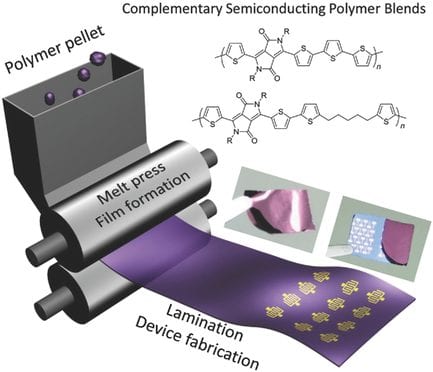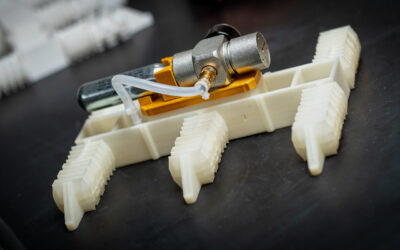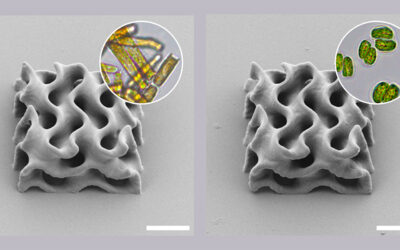Organic semiconductors continue to attract interest, being pertinent to flexible and printed electronics. While appropriate charge carrier mobilities of organic semiconductors are commonly achieved, a technical barrier to overcome still exists – specifically related to device production.
The production of such devices needs to be completed with high yields and at low cost, in a simple and robust process. Solution processing of organic electronics has been considered a promising approach; however, some issues continue to be a road-block for such a method, including the use of certain toxic solvents.
Recently, a collaborative team of researchers at Purdue University and the University of California Santa Cruz, have reported a strategy that overcomes the issue of solvent by employing a melt-processing technique. The proposed technique uses polymer blends that exhibit high morphological stability and excellent performance once processed.
Moreover, thin film field-effect transistors exhibited reprocessability, whereby a semiconducting polymer was healed after cutting and exhibited good recovered charge mobility.


















